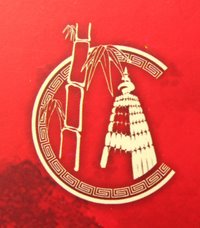Xuanzang (Chinese: 玄奘); was a famous Chinese Buddhist monk, scholar, traveller and translator that brought up the interaction between China and India in the early Tang period.
Xuanzang (Chinese: 玄奘;: Xuán Zàng; Hsüan-tsang) was a famous Chinese Buddhist monk, scholar, traveller and translator that brought up the interaction between China and India in the early Tang period.
Xuanzang is also known as Táng-sānzàng (唐三藏) or simply as Táng Sēng (唐僧), in Cantonese as Tong Sam Jong and in Vietnamese as Đường Tam Tạng. Less common romanizations of include Hhuen Kwan, Hiouen Thsang, Hiuen Tsiang, Hsien-tsang, Hsuan Chwang, Hsuan Tsiang, Hwen Thsang, Xuan Cang, Xuan Zang, Shuen Shang, Yuan Chang, Yuan Chwang, and Yuen Chwang. In Japanese, he is known as Genjō, or Genjō-sanzō (Xuanzang-sanzang). In Vietnamese, he is known as Đường Tăng (Tang buddhist monk), Đường Tam Tạng ("Tang Three Collection" monk), Huyền Trang (the Han-Vietnamese name of Xuanzang)
Born as Chen Hui, He was the youngest of four children. He was Confucian, but at a young age of 20 he was ordained a Buddhist monk. To clear the contradictions and discrepancies in the texts he decided to go to India, to study in the cradle of Buddhism.
He was in India for 17 long years, travelled through India and passed Orissa, He recorded over 50 Hindu temples, 100 Buddhist monasteries. These are inclusive of those in Bengal (Cuttack, Balasore and Puri ).
His strenuous translation of his collection of Indian Buddhist texts to Chinese, and subsequent these were the source of the recoveries of lost Indian Buddhist texts from translated Chinese copies. He is credited with writing or compiling the Cheng Weishi Lun as a commentary on these texts. He also founded the short-lived but influential Faxiang school of Buddhism. Additionally, he was known for recording the events of the reign of the northern Indian emperor, Harsha.
Under the Emperor's request, Xuanzang completed his book "Journey to the West in the Great Tang Dynasty" (大唐西域記), which has become one of the primary sources for the study of medieval Central Asia and India.
"Journey to the West in the Great Tang Dynasty" (大唐西域記), inspired one of the great Chinese Classics novel Journey to the West. This novel is the reincarnation of a disciple of Gautama Buddha, who is protected on his journey by three powerful disciples. One of them, the monkey, (he might well be inspired by the monkey god Hanuman); was a popular favourite and profoundly influenced Chinese culture.
Friday, October 17, 2008
Thursday, October 9, 2008
Subscribe to:
Posts (Atom)

